Jamaica Inn (1939)
“That place — Jamaica Inn. It’s got a bad name. It’s not healthy, that’s why. There’s queer things goes on there.”
|
Synopsis: |
|
Genres, Themes, Actors, and Directors:
Review: Indeed, as many have noted, Jamaica Inn is actually a “Charles Laughton picture” rather than a “Hitchcock picture”, given Laughton’s role as both producer and lead actor. He has great fun playing the corpulent baddie here, slyly fooling everyone around him, and coming across as simultaneously grotesque and calculating. Equally impressive is beautiful Maureen O’Hara (in her first significant film role), who displays every ounce of her Irish spunk — no simpering early-19th-century maiden she! Her Mary is refreshingly fearless, refusing to be cowed. I especially love the scene near the end of the film, when she resolutely ties the top strands of her dress back together after nearly being raped. Less successful, however, is the overall arc of the story, which is unevenly paced and lacks narrative punch; we should care much more about what’s going on than we do. Part of the problem is that essential character motivations are left unclear: for instance, while we understand that Mary’s Aunt Patience (Marie Ney) is firmly attached to her no-good husband, we never discover why: And, unless I missed something, we never learn why Pengallan holds the sway he does over Joss — nor why this must be (conveniently) kept a secret from everyone else in the gang. Overall, Jamaica Inn remains one of Hitchcock’s lesser outings, and is not must-see viewing. Redeeming Qualities and Moments:
Must See? Links: |
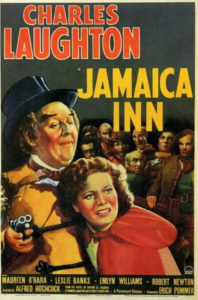
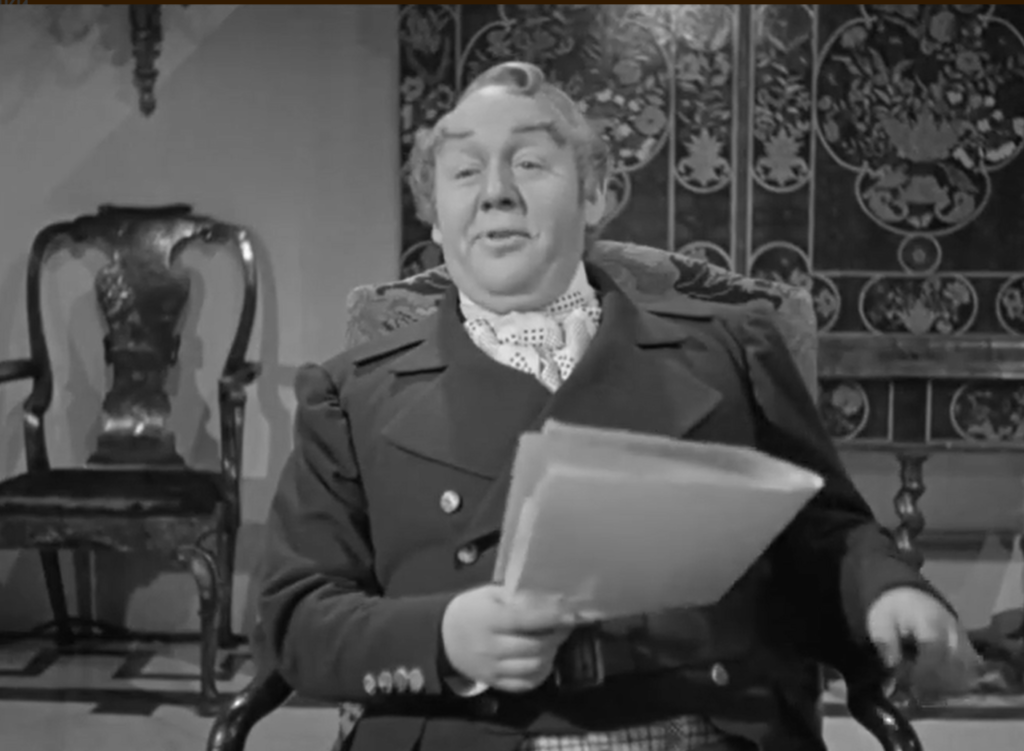
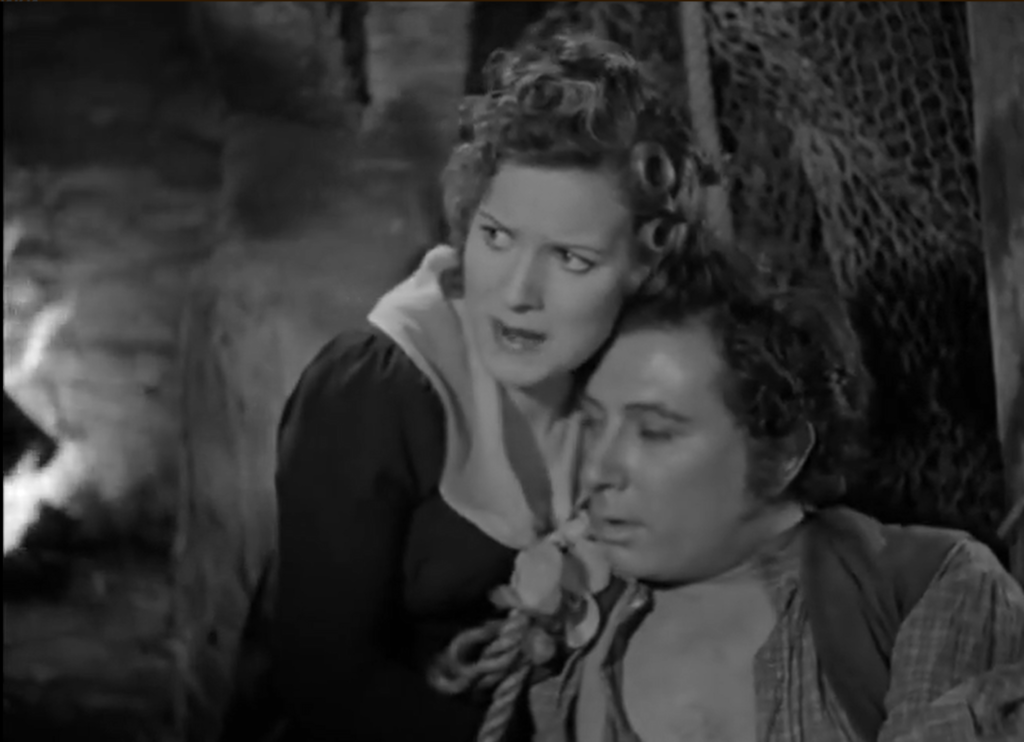
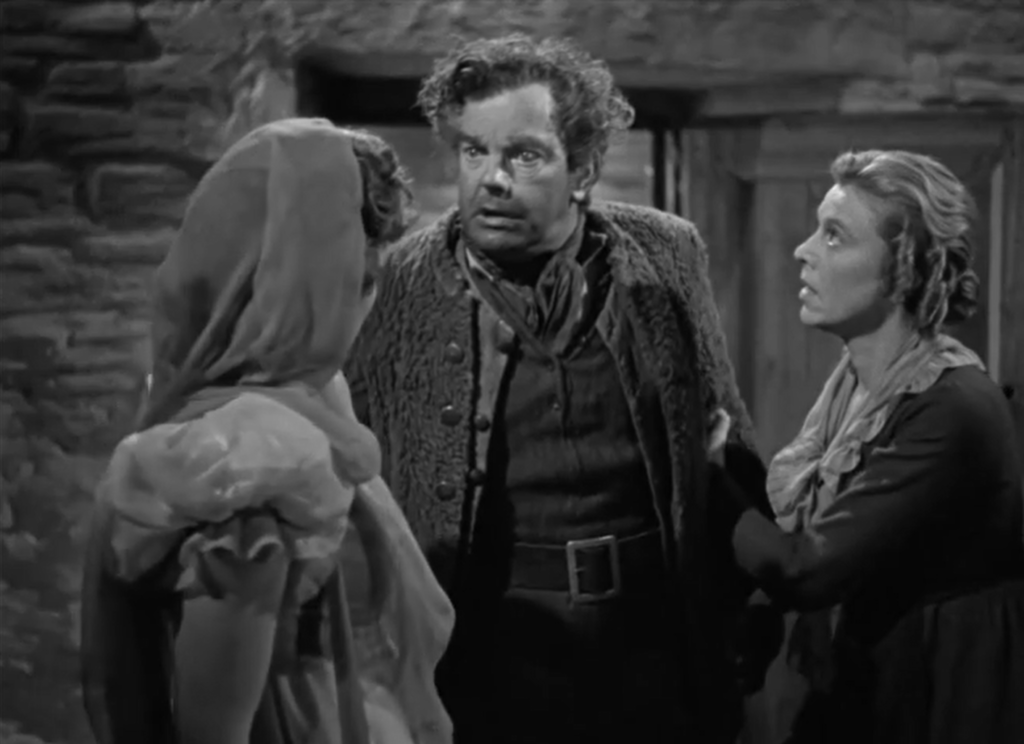
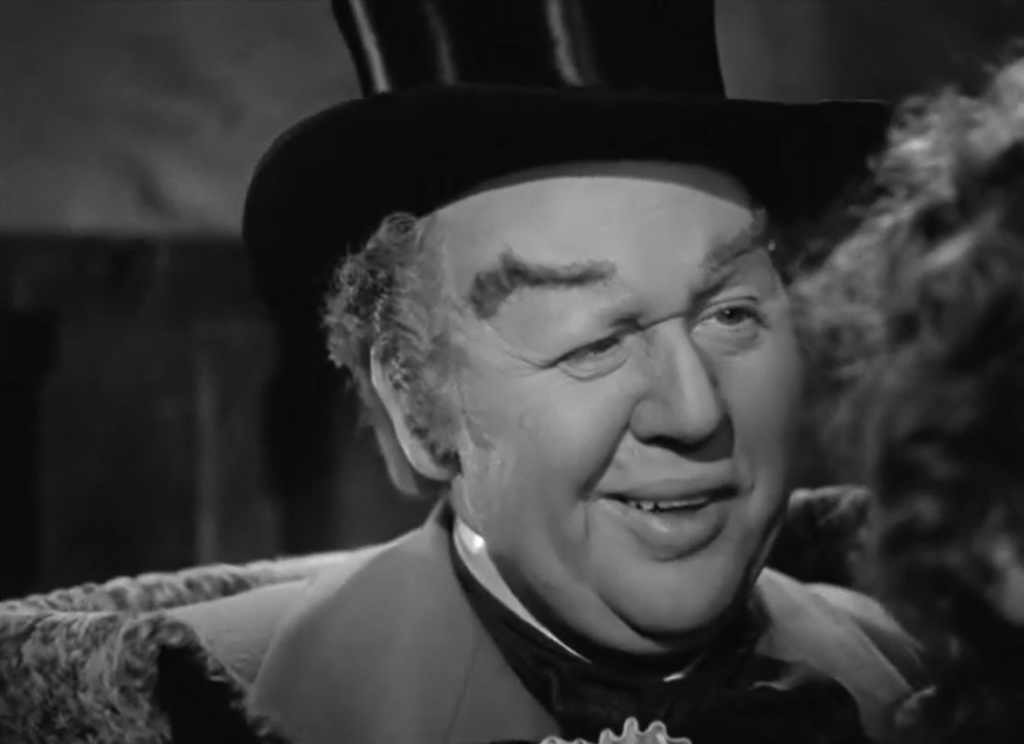
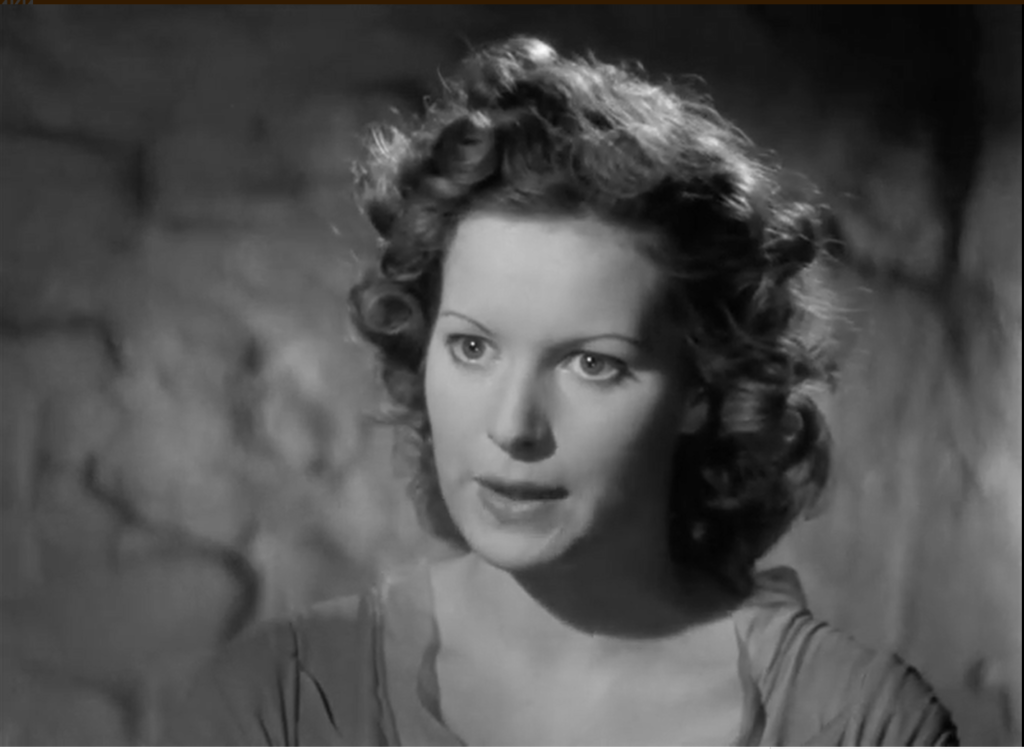
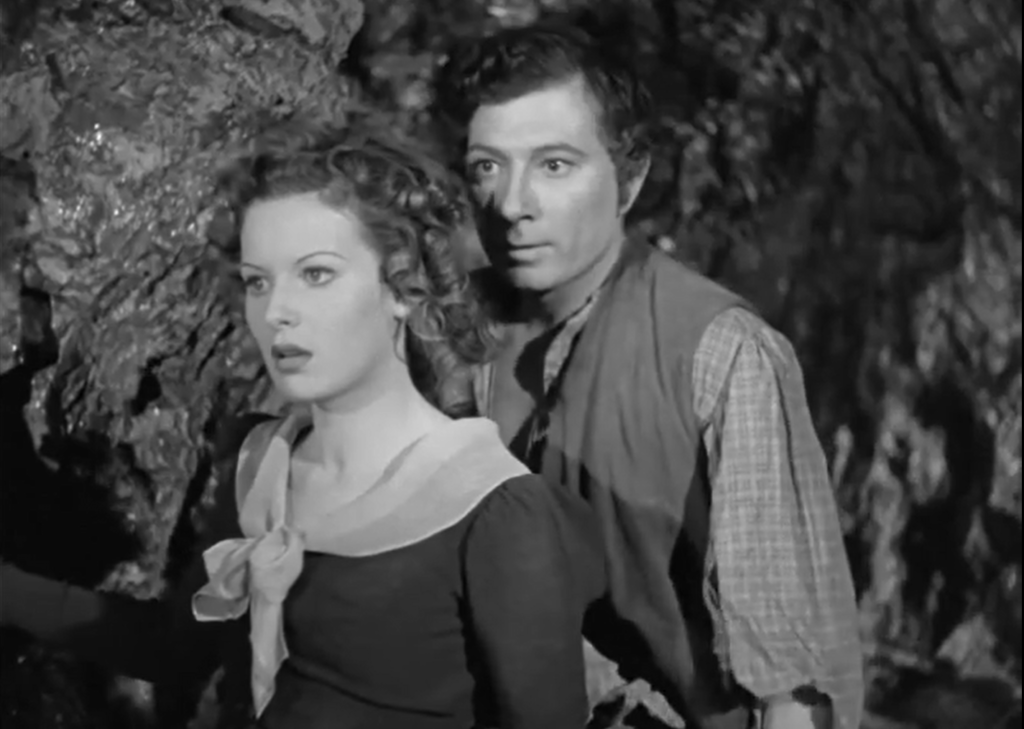
2 thoughts on “Jamaica Inn (1939)”
Not a must. However…
I’d actually only seen this once before tonight, years ago. I recall thinking it a minor film and, esp. after reading the assessment here, was not particularly looking forward to a second viewing. Much to my surprise, I find myself with the urge to defend it somewhat.
While I don’t agree that it “is unevenly paced and lacks narrative punch”, I do think “we should care much more about what’s going on than we do.” Why? To me, it’s not because the film is “unclear” (I actually find it rather straightforward), but rather because it is colder than any number of Hitchcock’s other cold films (which is what most of them are, really). I can’t speak about how invested Hitch was here – but the film is certainly a lot less studied than some of those considered his best. That may be why it is harder to readily recognize his presence.
But it’s most certainly there – and largely in Laughton’s character. If you’re on the lookout for Laughton’s smaller touches, you’re likely to see Hitch all over the place – and the two of them having quite a good time. As well, Hitch is very evident in the film’s big finish – which he pretty much handles splendidly.
I’d like to address two points in the assessment:
Yes, the adoration Aunt Patience (well named, obviously) has toward her husband is indeed bizarre, considering. However, note the moment when her husband is completely defeated and has his head in her lap. Watch her face. This is a moment she has been longing for for the length of the film – and, we’re to assume, for some time prior. The scene suggests that he was once a gentler man, and she is romantic about that time long ago in their relationship.
I find it clear why Laughton’s role would be hidden from the other members of the gang. To me, he appears to have stressed the ‘importance’ of that to Joss – who, not being the brightest bulb, bought it.
While I don’t think this one is a must, I don’t consider it “journeyman”. It’s rather solid work by all and is certainly very watchable – even if not largely memorable afterwards.
⭐️⭐️⭐️ out of ⭐️⭐️⭐️⭐️
A much maligned British Alfred Hitchcock film hampered by US censorship demands; the leading villain in the book was a clergyman and the US mores demanded that the clergy couldn’t be villains in films, so he became a squire. The rampant ego of Laughton also caused many problems and Hitchcock regretted making it.
However, it’s gorgeously shot with magnificent production design, costumes and set dressing. Performances are also excellent with lots of great British character actors sprinkled throughout. My only issue is that, bar the opening and closing credits, there’s very little music which would’ve helped build atmosphere … which it has been stated the film lacks. I don’t quite agree with that but do feel a florid score would’ve pushed the film to a higher plane.
As is, an extremely solid and enjoyable period adventure but not must see.